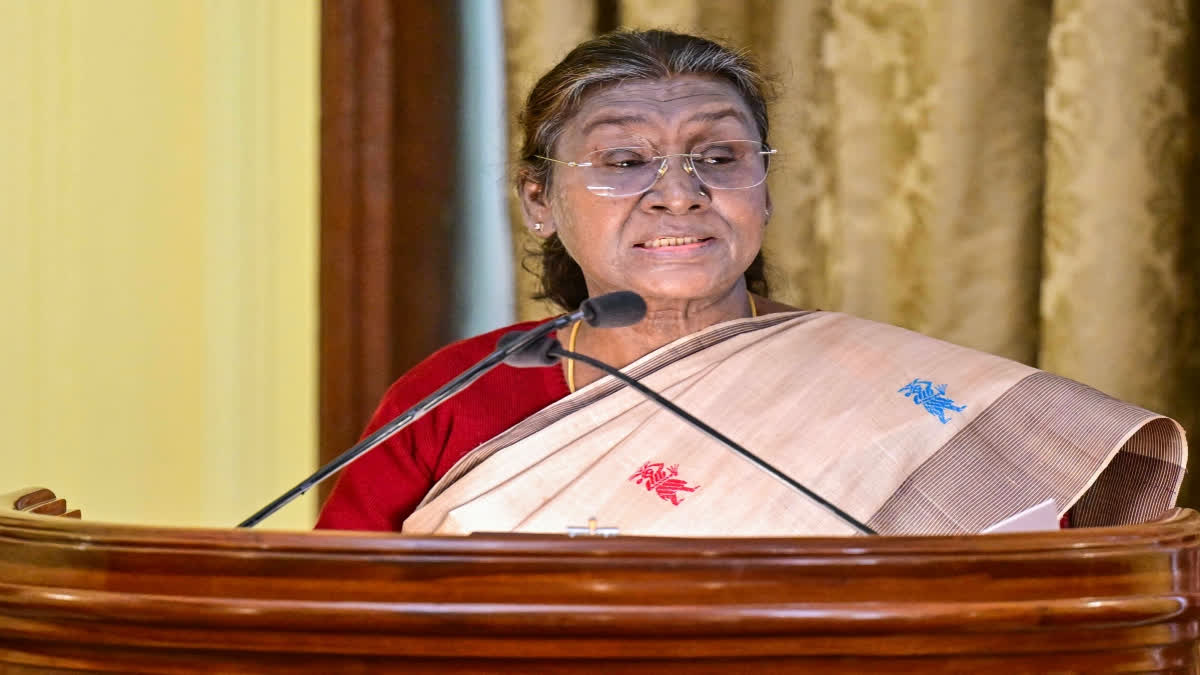New Delhi:President Droupadi Murmu on Saturday advocated for the "One Nation One Election" initiative, asserting it has the potential to redefine "good governance" in the country by promoting consistency in governance, preventing policy paralysis, mitigating resource diversion, and alleviating financial burdens on the state.
In her address to the nation ahead of the 76th Republic Day, she emphasised the government's ongoing efforts to "eliminate remnants of a colonial mindset that have lingered in the country for decades" and cited the replacement of the British-era criminal laws with three new modern laws.
"We have been witnessing concerted efforts to change that mindset... Reforms of such magnitude require an audacity of vision," she said.
Highlighting the significance of the proposed bill aimed at synchronising election schedules across the country, Murmu noted, "The 'One Nation One Election' plan can offer numerous benefits, including enhanced governance and reduced financial strain."
In discussing legal reforms, she pointed out the need to replace the Indian Penal Code, the Code of Criminal Procedure, and the Indian Evidence Act with new laws reflective of Indian traditions.
She mentioned the introduction of the Bharatiya Nyaya Sanhita, the Bharatiya Nagarik Suraksha Sanhita, and the Bharatiya Sakshya Adhiniyam, which prioritise the delivery of justice over mere punishment and place a strong emphasis on addressing crimes against women and children.
Reflecting on the significance of the Constitution, the President highlighted the progress achieved over the past 75 years.
"At the time of Independence, many parts of the country faced extreme poverty and hunger. However, we maintained a belief in ourselves and created conditions for growth," she said.
Noting the contributions of farmers and labourers, she said India's economy now plays a pivotal role in global economic trends, asserting that this transformation is rooted in the framework established by the Constitution.
The President also pointed to the persistently high economic growth rate in recent years, which has generated job opportunities, increased income for farmers and labourers, and lifted many out of poverty.
She underscored the importance of inclusive growth and the government's commitment to welfare, making basic necessities such as housing and access to clean drinking water entitlements for citizens.
Efforts to support marginalised communities, particularly those belonging to Scheduled Castes (SC), Scheduled Tribes (ST), and Other Backward Classes (OBC), were also highlighted.
Murmu mentioned various initiatives, including pre-matric and post-matric scholarships, national fellowships, and dedicated schemes aimed at the socio-economic development of these communities, such as the Pradhan Mantri Anusuchit Jaati Abhyuday Yojana and the Pradhan Mantri Janjati Adivasi Nyaya Maha Abhiyan.
The President's address underscored the government's commitment to fostering inclusive growth and redefining governance standards in the country, creating a vision for a more equitable and prosperous future for all citizens.
She emphasised that this occasion is a collective celebration of joy and pride for all citizens and remarked that while 75 years may seem like a brief moment in the life of a nation, it has been a significant period for India, marked by the revival of its long-dormant spirit and its journey to reclaim its rightful status among the world's civilisations.
